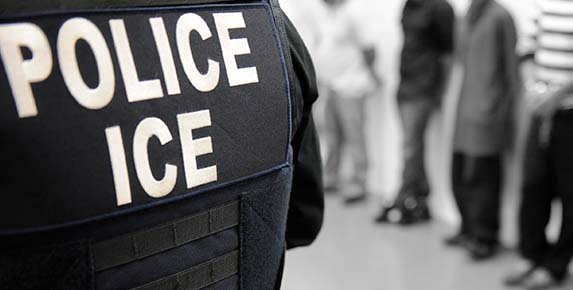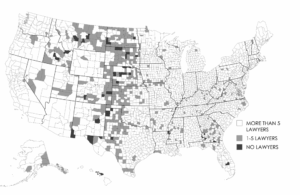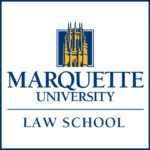A Labor-Based Response to ICE’s Worksite Raids

Workplace raids have become an important part of the Trump administration’s mass deportations agenda. The recent ICE raid at a Hyundai facility in Georgia made headlines not only because of its near-unprecedented scale—nearly 500 Korean workers were arrested—but also because of its unusual targeting of visa holders hailing from a key U.S. ally. But ICE enforcement at the places where immigrants work has been routine over the past year, since the government stopped following a Biden-era policy against the practice. Federal agents have in some instances opted for indiscriminate arrests in places where they think undocumented immigrants tend to gather, such as Home Depot parking lots and other meeting places for day laborers. Workplace raids offer a potentially more targeted tool to identify immigrants without legal status, since ICE can seek to verify work authorization information collected by employers.
In this enforcement context, some immigrant workers have begun taking action to protect themselves. Last month, dairy workers in Wisconsin went on strike to oppose their employer’s enrollment in E-Verify—a federal database that double-checks employees’ work authorization, which several workers feared would put them out of a job. The largely Latino workforce of a packaging plant in Chicago similarly organized a strike to demand, among other things, that their bosses refuse to allow ICE onto the premises without a warrant. These efforts suggest that collective bargaining may provide workers with a way to resist the mass deportation campaign.
The law is less hostile to these demands by immigrant workers—even undocumented workers—than one might think. To be sure, federal immigration law prohibits employers from hiring employees without work authorization, including most undocumented immigrants. But when immigrants are employed despite this prohibition, they are still entitled to virtually all the protections of federal and state labor and employment law. Even though the Supreme Court has held that undocumented workers cannot receive backpay remedies for unfair labor practices, they can still seek other remedies under the National Labor Relations Act. As an example, the National Labor Relations Board, in a 2018 case called Ruprecht Co., found an employer’s unilateral decision to enroll in E-Verify while union negotiations were pending to be an unfair labor practice, ordering the employer to withdraw from the program.
At the same time, immigrant workers face some important hurdles in demanding that their employers protect them from ICE enforcement. Notably, the NLRA does not apply to agricultural workers or independent contractors, which together account for many of the most common occupations of undocumented immigrants. But even for unionized workers covered by the NLRA, the Trump administration—aided by the Supreme Court’s emergency docket—has crippled the government’s ability to enforce federal labor law, firing multiple members of the NLRB and thereby depriving it of a quorum. Both the non-unionized dairy farm workers in Wisconsin and the unionized packaging workers in Chicago may find it challenging to enforce their rights against intransigent employers.
State law may be able to fill in the gaps in immigrant labor protections created by both the exclusions in federal labor law as written and the dismantling of federal labor law in practice. Some states have already taken steps to shield immigrants from workplace enforcement. Illinois, for example, recently enacted a law forbidding employers from using E-Verify to fire or conduct immigration checks on current employees. A 2018 California law went even further, declaring it a civil offense for an employer to provide voluntary consent for immigration enforcement agents to enter nonpublic workplace areas without a warrant. These direct state regulations of employers provide rights to immigrant workers who—whether because their union organizing is not protected by labor law, or because they have not successfully won a union contract—have not secured these rights through their own collective bargaining.
Framing these kinds of state regulations as protections for collective bargaining may also open up new legal possibilities. As labor law scholars including Gali Racabi and Alvin Velazquez have argued, a moribund national labor regime under the NLRA may free state labor protections from federal preemption. Some state law already fills gaps created by the federal statute—Wisconsin law, for example, grants a right to unionize free of agricultural or any other sector-specific exemptions. States seeking to insulate their immigrant residents from workplace enforcement might consider using state labor law to codify the NLRB’s approach in treating employers’ unilateral enrollment in E-Verify or other cooperation with ICE operations during union negotiations as unfair labor practices. This labor-based approach would only apply to workers actively seeking to form unions and bargain with their employers. But combined with expanded access to union rights in general, these immigration-specific protections could help ensure that employers cannot use federal enforcement to disrupt the collective bargaining process.
Labor law may also compensate for the legal deficiencies of other methods states have used to protect immigrant workers form ICE enforcement. Soon after California enacted its 2018 law barring employers from consenting to warrantless raids, the first Trump administration sued. Federal courts granted the government’s request to enjoin the law, finding that it violated the intergovernmental immunity doctrine. Even though the law on its face only regulated private employers, courts treated it as impermissible discrimination against private actors who choose to interact with the Department of Homeland Security. State labor regulations might avoid the intergovernmental immunity issue by defining the unfair labor practice more broadly, covering any unilateral choice by employers to grant state or federal law enforcement access to nonpublic workspaces. The labor-based approach also operates on a different premise. Rather than simply penalizing employers for allowing ICE to enter their workplaces in all circumstances, this approach would instead make immigration enforcement a required subject of union negotiations. These laws would not make the choice to interact with ICE per se unlawful, as long as this choice is made with workers’ input.
Lawmakers in many states have expressed concern about the impact of aggressive ICE enforcement on immigrants seeking to earn a living, as well as on the industries and communities in which they work. Meanwhile, immigrant workers have begun to advocate for themselves by demanding that their employers refrain from voluntary cooperation with ICE. As federal immigration enforcement ramps up while federal labor enforcement winds down, states have an opportunity to devise new labor law tools to protect and empower immigrants at work.


